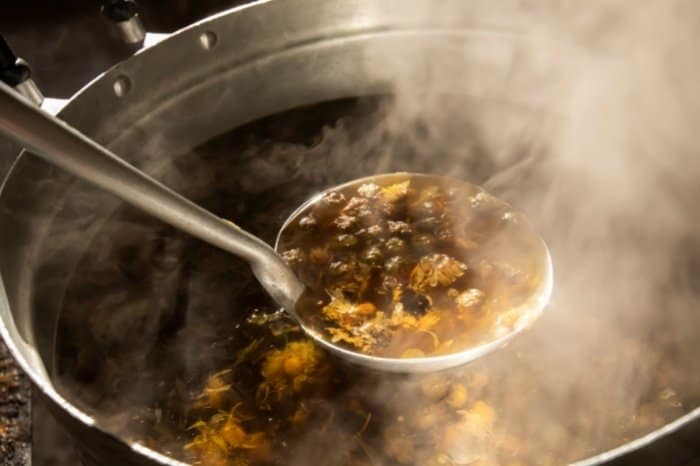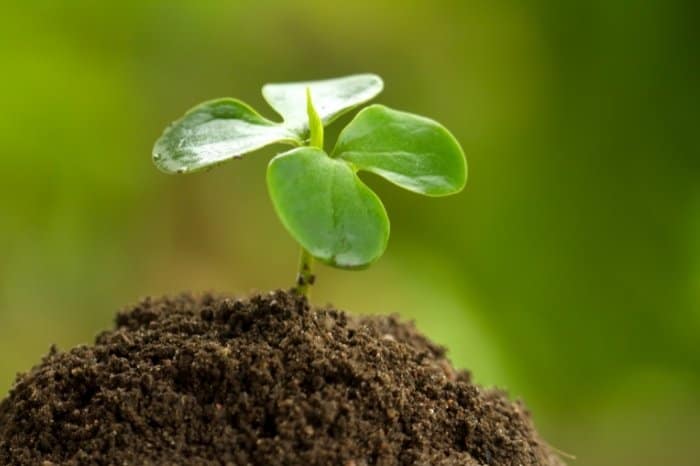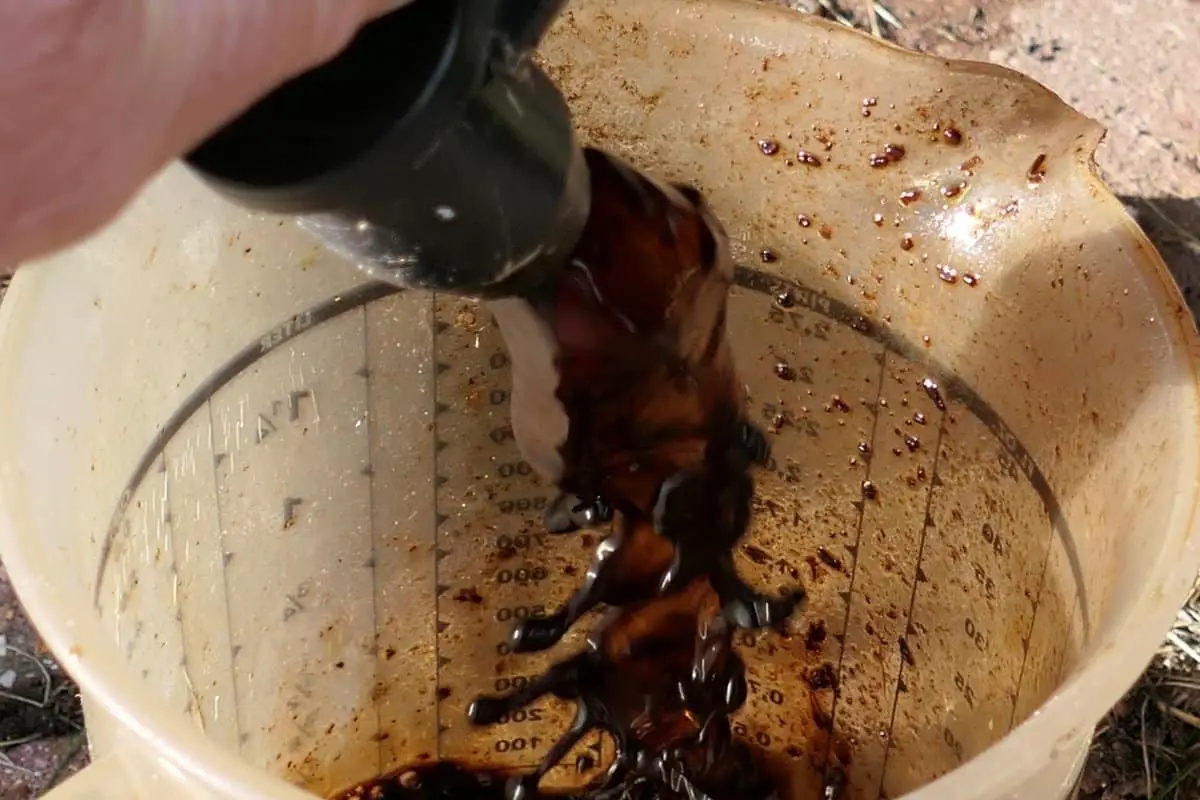Last Updated on January 18, 2023 by Urska
Gardening comes with so many trends that come and go, but do you know the current one and how it’s used – what is compost tea used for?
Compost tea is currently a hot trending topic in the gardening world with many people wanting to find out the truth beyond the fad status.
This tea has been described as the magic that makes plants grow faster, ripen faster, and taste better. Well, some of these claims may be taken true and give the plant real benefits; others ought to be taken with a grain of salt. Let’s earn together!
What Is Compost Tea?
Compost tea is an infusion just like normal tea that requires heating water to a boiling point and pouring it over herbs to create a healthy drink.
Once the water boils and mixes with the herbs it is left to go through a fermenting process. Besides it being a tea, it also goes through a fermentation process making it more of a beer or fermented tea. The brewing or fermenting process concentrates the bacteria, protozoa, fungi, and nematodes into an organic compost tea that is easily absorbed by plants.

How Long Does It Take To Brew The Tea?
It takes about 24-36 hours to make compost tea. If you store it any longer than that, your concoction is in danger of collecting some unfriendly bacteria like salmonella and E. coli.
The microbes created will use up all the oxygen provided creating anaerobic conditions. This condition increases the likelihood of viruses, mold, and bacteria thriving.
What Is The Difference Between Compost Tea And Aerated Compost tea?
Compost tea is simply throwing your ingredients into a bucket of water, letting it sit, and voila you have the tea ready in several hours. for the best.
The second tea known as aerated or aerobic compost tea needs oxygen and agitation. The regular compost tea is mixed with more oxygen than in the compost tea. It requires a little more work, with a lot less smell. The theory behind the work is if microbes use up oxygen quickly, which creates anaerobic conditions; then aerating the compost produces a higher number of good organisms faster and removes the bad ones.
This process is done using an aerating pump the same as those used in fish tanks to create a bubbling action in the solution.
Compost Tea Kit: 5 Gallon Get Brewing Special~ BubbleSnake, Bag, Air Pump & Tubing
How Do You Apply The Compost Tea?
Now that your tea is ready – congratulations! But before you feed your plants, you will need to first dilute your concentrated tea.
Dilute the tea at least at a ratio of 1:4 or 4 cups:1 gallon; most people also use 1:10.
Once diluted, apply your tea directly to the soil or use it as a foliar spray. Foliar feeding is the best method as it boosts the health of plants that are weak or sick. You will need more than one application to see the results. Apply at least biweekly for the best results.
More than one application is necessary to see real results, and most people recommend it at least bi-weekly.
What Are The Benefits Of Using Compost Tea?
Though the research has not been able to give a full report on this, the gardeners who use it swear by it from personal experiences.
Compost tea used together with other good gardening habits promotes healthy plants. There is no magic to using compost tea, you must also make sure the rest of the gardening tips are followed keenly.
Some of the benefits you will experience from this tea include:
- Improving your soil’s nutrients. This is one of the popular benefits that most gardeners have reported. Because this tea provides the same nutrients as the compost manure, it gives the soil more benefits.
- It Increases the population of nematodes and mycorrhizal fungi. These two crucial nutrients both help defend plants against a range of microorganisms.
- Compost tea helps plants grow faster, produce more yields, and increase their overall health. The tea also decreases the number of pests and diseases in the soil.

Other Types Of Compost Tea
- Manure Tea This is the most commonly used by farmers. It is a mixture of various well-aged manure soaked in water. It can be very stinky so before starting be ready for a foul smell around your home for several days. However, the benefits are well worth the smell.
- Plant Tea. Plant tea is made by soaking a plant that has nutritious properties to extract those nutrients. The most common plants uses are nettle and comfrey that have valuable nutrients like potassium and phosphorous.
- Commercial Microbial Tea. This tea is sold as an instant mix that only requires you to add water and voila you have your tea. It specifically fights plant issues and is free from bad bacteria.
- Compost Leachate. There is a fine line between the regular compost tea and the composting leachate. Both of these teas are required to sit in water for some hours. However, leachate is produced when water leaches through your compost bin or worm compost. Leachate is not fermented but is still considered a valuable addition to the soil.
How To Make Compost Tea
Basic Compost Tea Recipe
- 5-gallon bucket
- Non-chlorinated water – rainwater, or tap water that has sat for over 24 hours
- 1-2 cups of inoculant – compost or worm castings
- ½ or a ¼ cup of food source for fungi or bacteria
Bacteria need proteins and sugars to thrive and one of the best sources for this is unsulphured molasses.
Fungi require more complex sugars with common sources that include fish hydrolysate, seaweed/kelp ad humic acid.
Most gardeners make a solution from both fungi food and molasses to create a good balance of nourishment for both bacteria and fungi. It comes down to the ingredients you readily have available.
Easy Compost Tea Recipe
If you want to avoid buying chemical products like humic acid, you can try this recipe.
- I tablespoon liquid fish fertilizer
- 1 tablespoon unsulfured blackstrap molasses
- 5-gallon non-chlorinated tap water
- 2 cups fully ready organic compost – ready organic smells nice
- 1 tablespoon liquid kelp fertilizer – or you can soak kelp in water
Conclusion
Compost tea is an excellent way to revive the soil when it needs more nutrients to establish beneficial aerobic microbes on the leaves of the plants.
Now that you know its benefits and ingredients to make, you can go ahead and try it and let us know in the comments if you noticed any changes to your crops.
We look forward to hearing from you!
FAQs
What can you do with compost tea?
You’re probably familiar with the idea of compost tea. It’s a nutrient-rich liquid that is made by mixing a mixture of raw organic material like food scraps, manure, leaves, and grass clippings with water. This concoction is then left to sit for anywhere from a few days to a few weeks, allowing the liquid to extract nutrients from the compost.
Compost tea is a liquid fertilizer that you can use on your plants. The result of this process is a nutrient-rich liquid that can be applied to your garden. Compost tea is a great way to improve your garden soil.
The main benefit of using compost tea in your garden is that it helps to feed and nourish your plants while improving their health.
It also contains beneficial bacteria, which are essential for the health of all living things.
Compost tea also has many benefits for humans, such as:
Makes your skin soft and smooth
Makes your hair shiny
Heals wounds
Promotes weight loss
Promotes overall health
How do you make compost tea?
You can make compost tea in many ways.
The most popular way is by using a compost tea maker. A compost tea maker consists of a container that you fill with compost. You then let it sit for a while. When the time is right, you pour the liquid out of the container and into your garden. This type of compost tea will usually contain high levels of nitrogen, which makes it an excellent fertilizer for your garden. You can also make compost tea by using a bucket or bin.
You can either let the compost sit in the bucket for a few days or use a pump to release the liquid. Compost tea is very popular because it doesn’t need to be reapplied as often as other fertilizers. It can be used every month or two to help keep your soil healthy. If you don’t want to make your own compost tea, there are many commercial options available for purchase. Compost tea is easy to make. The first thing you will need is a bucket.
You can use any old bucket that you have lying around, but make sure it has a lid and a spout. You can also use a 5 gallon bucket. Fill the bucket with your compost, water and add some Epsom salt. Mix well, cover and let sit for about two weeks. Once the compost is finished, strain it through a fine mesh strainer and you have your compost tea!
How often should I use compost tea on my garden?
The most common recommendation is to apply compost tea once every two weeks. Compost tea can be used as a foliar spray or applied directly to the roots of the plants you are trying to improve. You can also apply it to the soil around your plants to help improve their overall health and to keep your garden from getting too weedy.
What makes a quality compost tea?
A good compost tea should be rich in nitrogen, phosphorous and potassium, which are the building blocks of life.
These nutrients help your soil retain moisture and help plants grow bigger and stronger. When you are ready to apply compost tea, make sure you are not adding manure to your compost tea. This will cause your compost tea to turn into manure. It's not very healthy for your plants.
How long can you keep compost tea?
Compost tea keeps for up to 6 months in the fridge. If you don't put it in a sealed container it will begin to ferment. Don't try and drink it, it's not fit for human consumption!
Can too much compost hurt plants?
Too much compost can cause problems for plants. But the real problem is not having enough.
Caroline is a gardener who loves to get down to the nitty–gritty of gardening. She proudly proclaims herself as a ‘dirt worshipper‘ and can often be found deep in the garden, covered in soil and singing to her plants. As a self–proclaimed ‘plant whisperer‘, Caroline believes that plants need love and attention just like any other living thing, and she loves to give them both. When she‘s not tending to her garden, you can often find her researching the latest gardening trends, or teaching others how to make their gardens thrive



